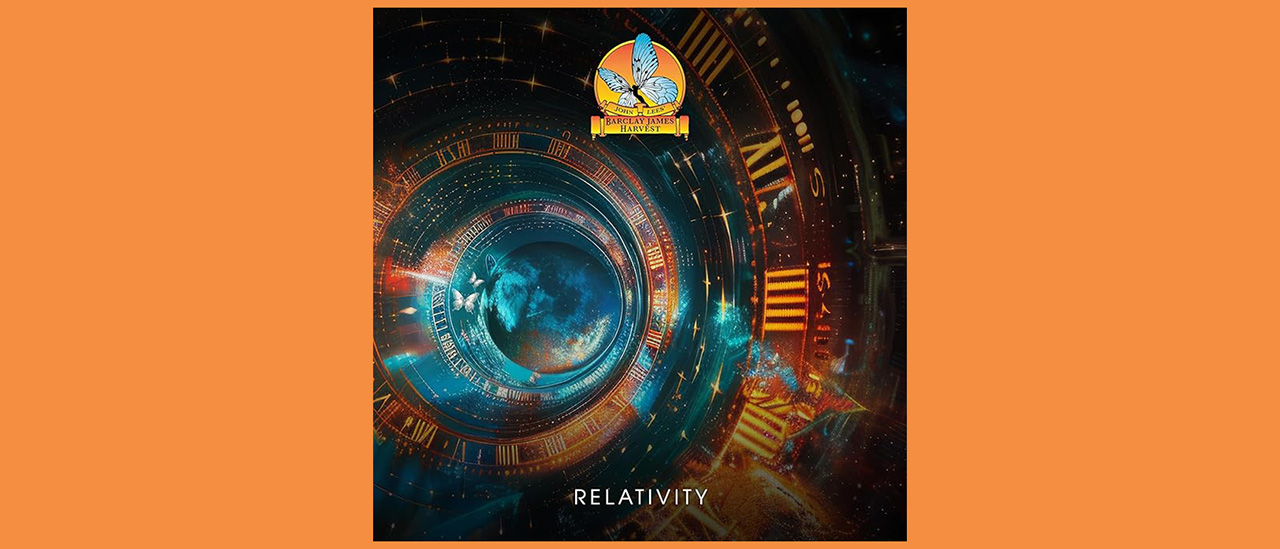You can trust Louder
It’s 55 years since Barclay James Harvest’s debut album, and 12 years since their last outing, North, which sailed under the flag of John Lees’ Barclay James Harvest, in use since a dispute between founding members in 1998.
Lees retired from touring two years ago – but now his quartet prove they’ve plenty left in the tank as Relativity goes big on concepts, scale and length. Its self-produced, sophisticated 78 minutes glide confidently through the gentle, unhurried brand of progressive rock which made the BJH name.
There’s zero attempt to update their sound: the priority is delivering carefully-crafted songs of piquant melody with soothing, sonorous guitar manoeuvres. While very much a band effort, and vocals shared as Lees’ own have begun to lose power, it still feels like he’s the man guiding the vision, urging the record towards heights of grandeur.
That’s clear from the themes, which touch on religion, mortality, love and the mysteries of the cosmos. Loyal fans would expect nothing less from the group who constructed such anthems as Child Of The Universe, Mockingbird and Hymn.
They never were – as their own self-deprecating joke went – the “poor man’s Moody Blues.” But only an obtuse listener would fail to spot similarities in aim and ambition between the bands’ methods.
The music seeks to lap at the shore, gradually swelling until emotional banks burst. On opening number Relativity Part 1 (Through The Dust) Lees sings of the strengths and weaknesses of being human, while acknowledging how tiny the species is against the backdrop of, well, the universe.
Much later, Relativity Part 2 (The Stars That Shine) closes the album. It climaxes on a positive note after its show is stolen by a dazzling display of soloing from Lees, giving David Gilmour a run for his money. There’s a clever sudden cut-off too, which recalls the dramatic ending of Eric Stewart’s superlative solo on 10cc’s Feel The Benefit.
Sign up below to get the latest from Prog, plus exclusive special offers, direct to your inbox!
Between those colossal bookmarks are solid, furrowed-brow, mid-tempo constructions like The Blood Of Abraham and Hour Glass. Bassist Craig Fletcher sings often, with presence. Jez Smith’s keyboard textures define the 21st-century BJH sound, while Kevin Whitehead’s drumming leans towards the tastefully restrained.
Snake Oil packs some bite, and The End Of Days, if a tad on the nose, stares down the present times. Love, a simple acoustic-led ballad, is highly effective in its ease and grace.
This album won’t stun, but will stir. It’s rich in resonance. It has gravity.
Relativity is on sale now via Esoteric.
Chris Roberts has written about music, films, and art for innumerable outlets. His new book The Velvet Underground is out April 4. He has also published books on Lou Reed, Elton John, the Gothic arts, Talk Talk, Kate Moss, Scarlett Johansson, Abba, Tom Jones and others. Among his interviewees over the years have been David Bowie, Iggy Pop, Patti Smith, Debbie Harry, Bryan Ferry, Al Green, Tom Waits & Lou Reed. Born in North Wales, he lives in London.
You must confirm your public display name before commenting
Please logout and then login again, you will then be prompted to enter your display name.



